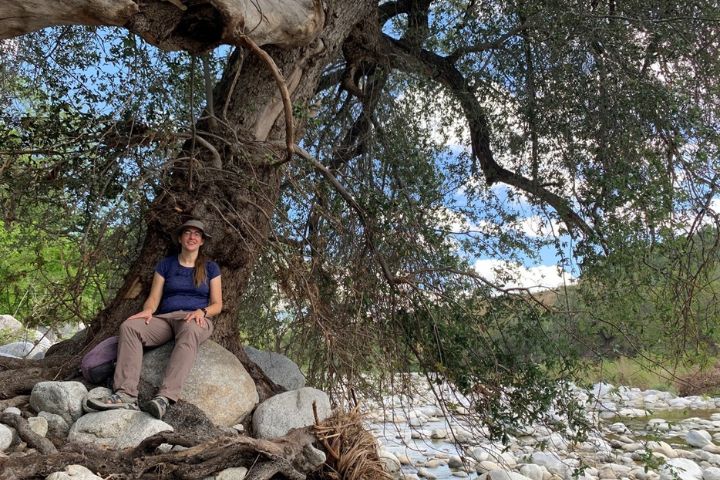 (Photo Courtesy Silvia Alvarez-Clare)
(Photo Courtesy Silvia Alvarez-Clare)
Conservation efforts are more important than ever, as indicated in a new study conducted by Dr. Christie Klimas, Associate Professor of Environmental Science and Studies. In partnership with Dr. Silvia Alvarez-Clare of the Morton Arboretum and a team of DePaul and Mexico-based students, the researchers examined environmental factors impacting acorn production of an endangered tree species, an oak known as Quercus brandegeei native to the Baja California region. Receding riverbeds, dwindling numbers, and poor seedling regeneration are just some of the problems affecting the tree's welfare.
“To gain a better understanding of the challenges this species faces, we conducted an analysis of spatial dispersion, and evaluated environmental factors like temperature and precipitation that may influence Q. brandegeei's spatial assembly and likelihood of fruiting," Dr. Klimas explains.
The team followed at least a dozen populations and found that regions with lower rainfall coincided with a lower percentage of acorn production across the 194 trees tracked in the study. “This is important as rainfall varies by region and precipitation may decrease with climate change" says Dr. Klimas.
The findings suggest a crucial role for community conservation as climate change emerges as a growing threat. The future of endangered species like Q. brandegeei depends on both reducing the mortality of existing trees as well as enrichment plantings to support long-term survival. Such plantings should be protected by enclosures that prevent livestock grazing. The full study was published in Botanical Sciences and is available here.